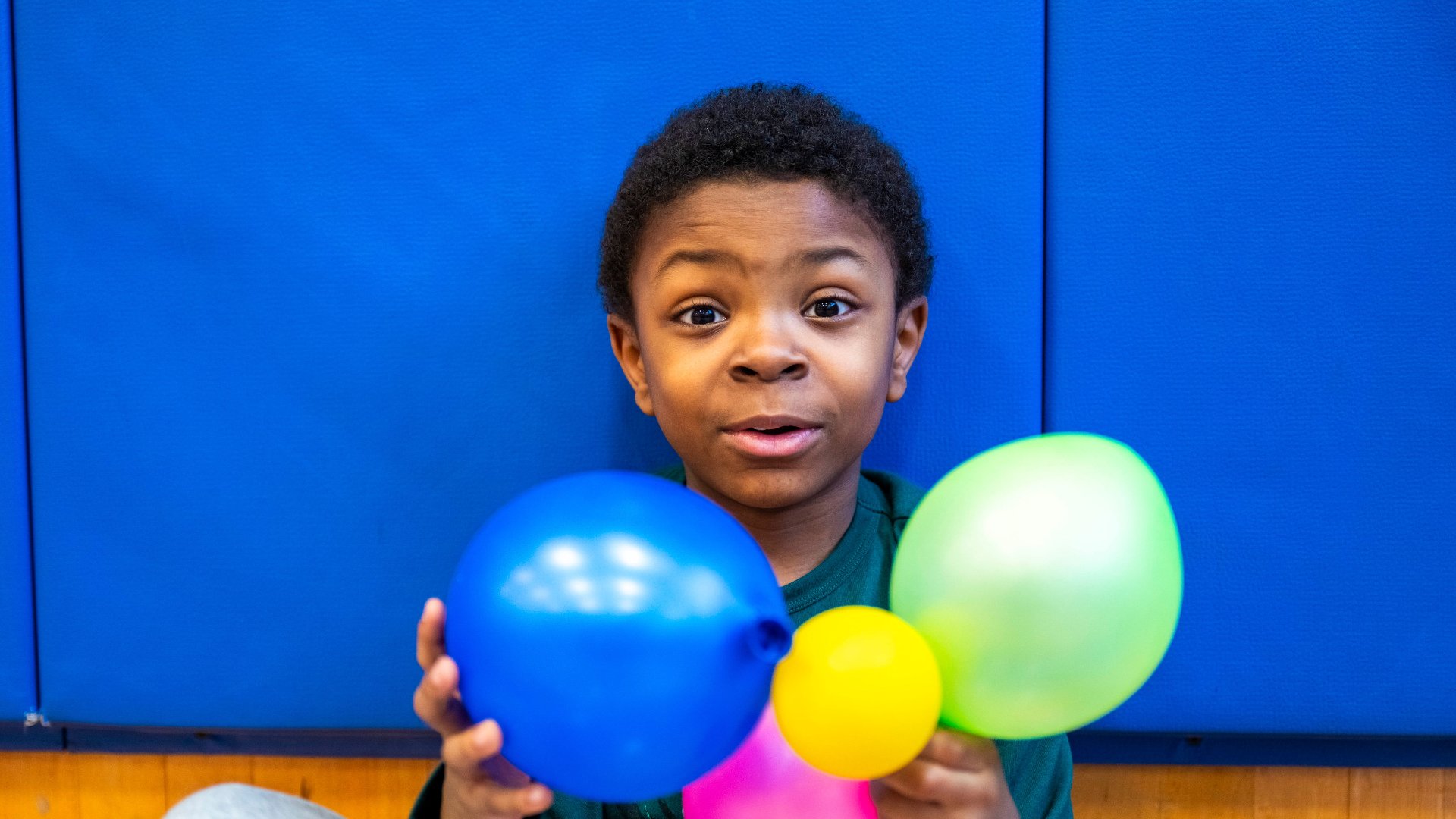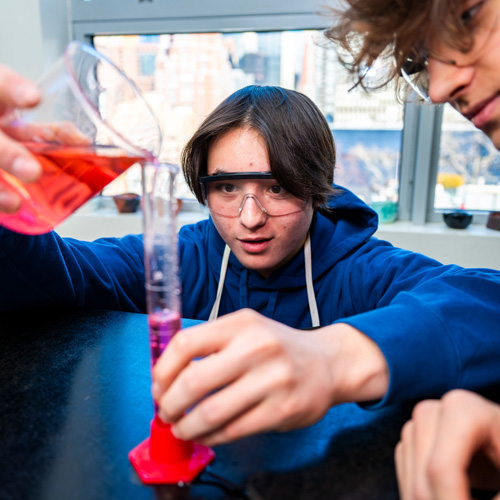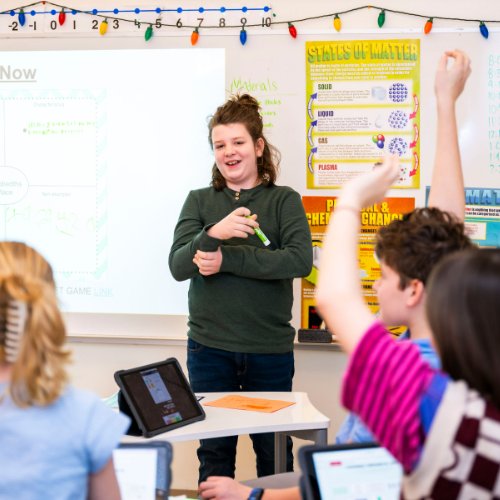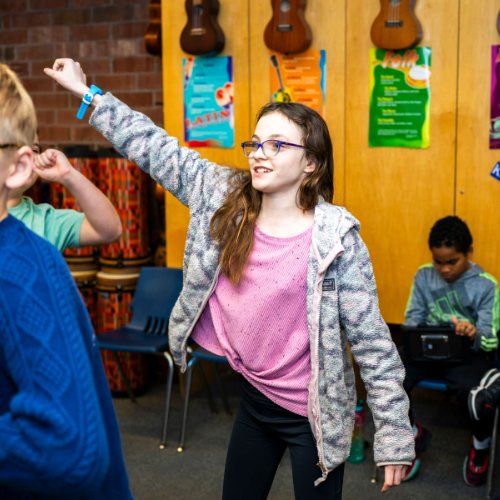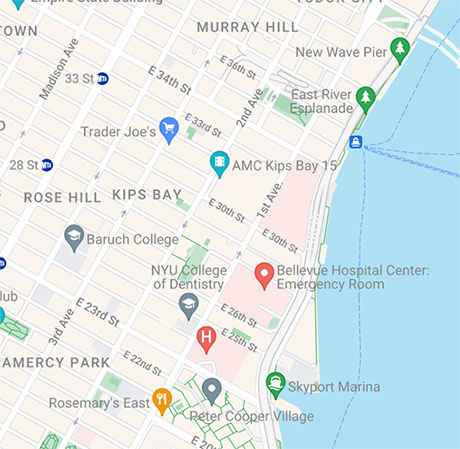A Love For Knowledge
We recognize that the lower school years lay the foundation for a lifetime of learning, and as such, we strive to instill a love for knowledge and a passion for discovery in each and every student. Our approach is built to nurture both academic excellence and the social-emotional growth and well-being of our students.
Students learn in small group settings, where every student is encouraged from a young age to recognize their needs so that they can confidently advocate for themselves. This equips them with boundless confidence that radiates beyond the classroom.
As students progress to the upper grades of the Lower School, they receive tailored support that broadens their academic independence while further developing their organizational and study skills.
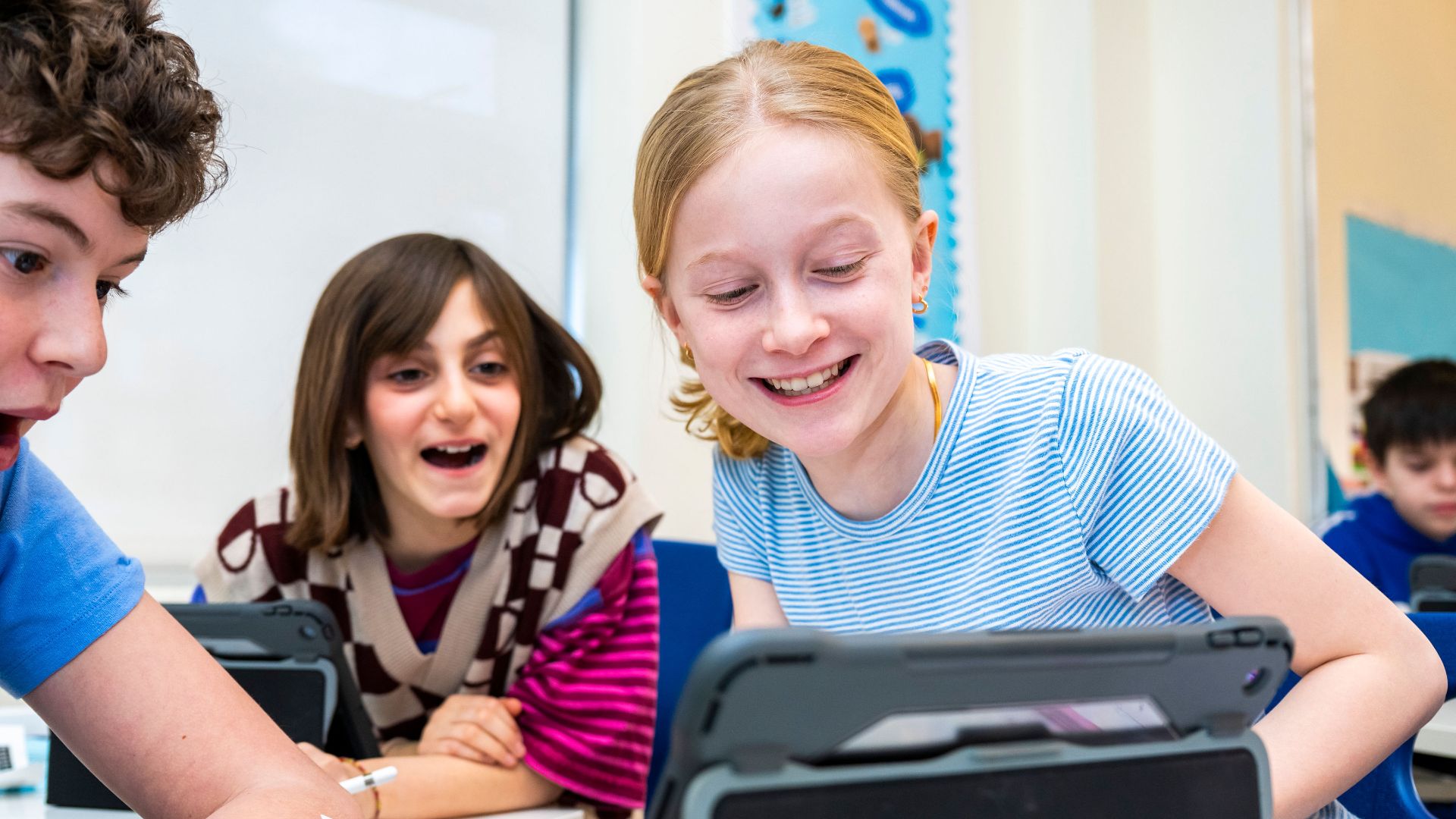
A Curriculum for Curious Minds
Our curriculum is designed to unlock a world of boundless potential and possibilities for children with language-based learning disabilities. Beyond subjects like literacy and math, we spark curiosity through science, performing arts, physical education, library classes, technology, music, and the arts, as well as a dedicated executive functioning and social skills curriculum.
Every day has the potential to be a great day.
Expert Educators Shaping Bright Futures
Our school professionals guide even our youngest students to understand their learning challenges and uncover their strengths.
In a seamless partnership of support, our team of school psychologists, social workers, speech and language therapists, and occupational therapists work closely with classroom teachers and administrators. This collaborative approach ensures that each student receives the tailored support they need to thrive.
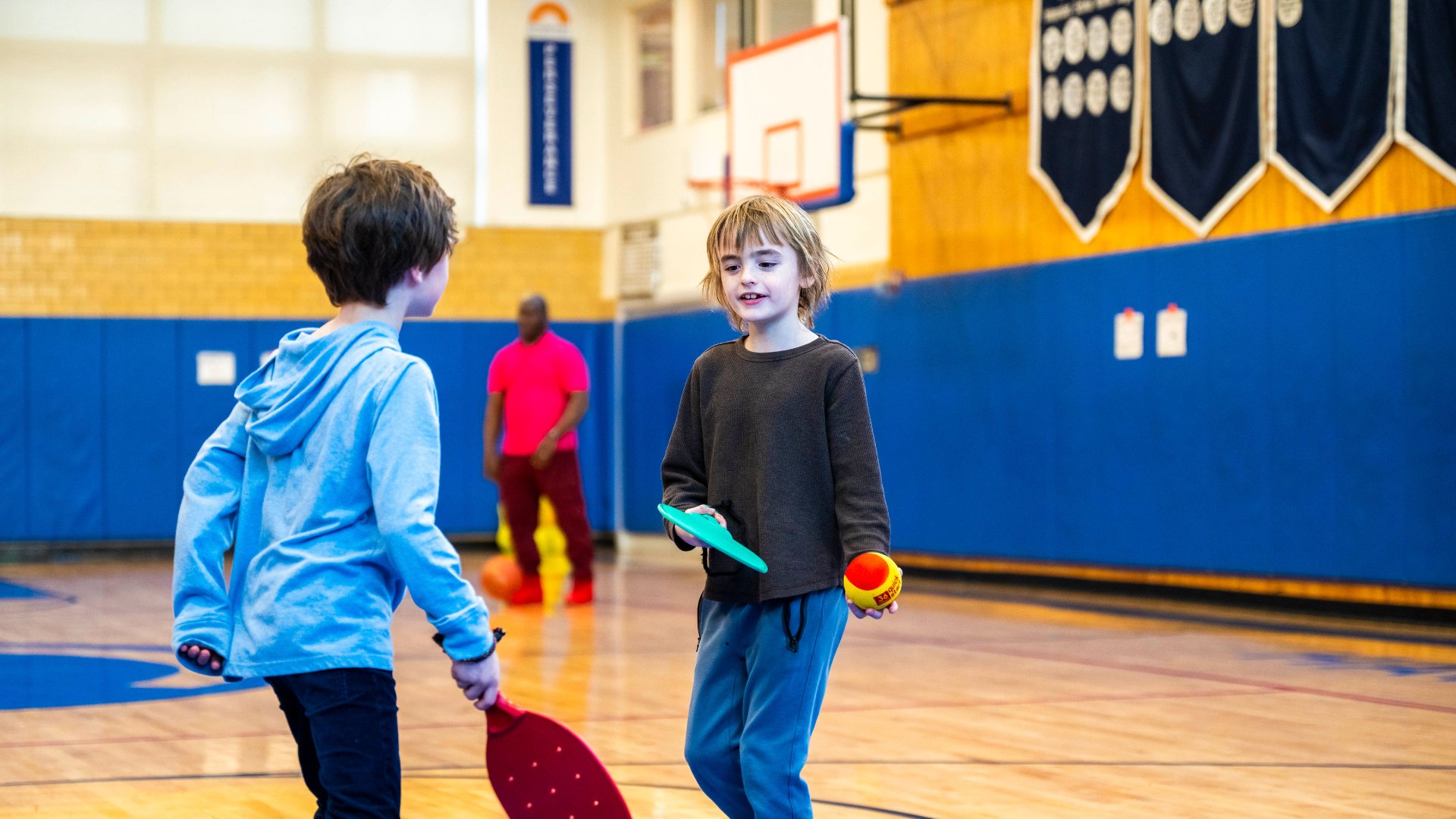
Enriching Extracurricular Experiences
Churchill is a dynamic learning community. We infuse community meetings, field trips, and a variety of engaging activities throughout the year, including both day trips and overnight adventures. These experiences are thoughtfully tied to our curriculum, enriching learning in meaningful ways.
Churchill’s Lower School is a place where every child can find their place to belong and thrive.
